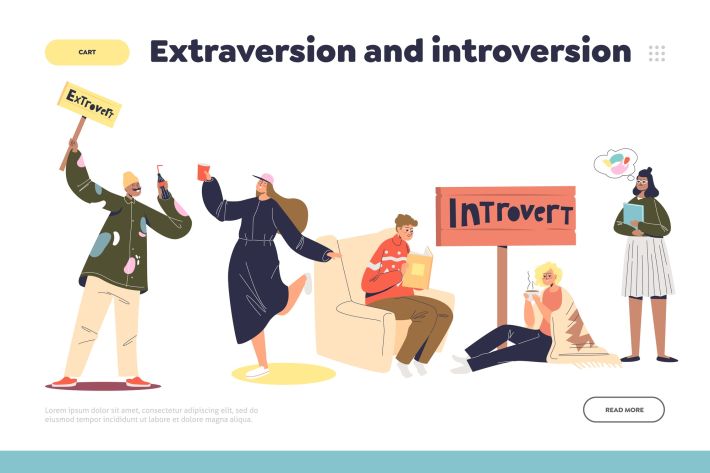- in Personality , Relationships by Tony
Echoism vs Narcissism: What’s the Difference?

Have you heard of Echoism?
It’s a term used to describe individuals who tend to repeat what others say to avoid conflict or assert their own opinions. In a world where narcissism often dominates our social media feeds, a lesser-known term offers a refreshing alternative: echoism, the other side of Narcissism
Echoism being the opposite of narcissism, and it describes people who prefer to remain in the background and pursue a quieter, more empathetic way of life. In this article, we’ll define echoism and how it differs from narcissism and fits in with other behaviours and relationships. Ulteriorly, how can you identify if you have echoistic tendencies?
More...
What is Echoism?
Echoism is a term coined by psychotherapist Dr Craig Malkin, and it refers to individuals who prefer to remain in the background, avoid the spotlight, and prioritise others’ needs above their own. Echoists tend to have low self-esteem, struggle to assert themselves, and may even feel ashamed of taking up space in the world.
Echoists are not doormats but tend to be kind and supportive, but this doesn’t mean they are naïve or weak, with many being intelligent and successful and more than capable of getting cross if, for example, you make a fuss of them.
How is Echoism Different from Narcissism?
At the other end of the narcissism spectrum are what we call the echoists (named after the lovelorn nymph Echo, who fell for the self-adoring Narcissus in the original Greek myth), who struggled to feel superior and was afraid of seeming narcissistic in any way — so much so that they often suffer from anxiety and depression, and lose their voice.
They can’t even see themselves through slightly rose-tinted glasses. Unlike narcissists who crave attention, admiration, and validation, echoists aim to avoid it. They often struggle to accept compliments, feel uncomfortable receiving gifts, and may even reject the help offered.
They tend to expend their energy on others, and this imbalance of giving and receiving can leave them feeling depleted and resentful.
The story of Narcissus and Echo

Narcissists & Echoists, Get Their Names from Ancient Greek Mythology.
Narcissus was the nymph who fell in love with his reflection, obsessing over it to the point that he neglected food and rest and died. But few of us know Echo’s tragic tale who was condemned to repeat the last words anyone uttered to her, and when she fell in love with Narcissus, she could sadly only echo him. Being rejected, she grieved and died.
Are You an Echoist?
Echoists are often people pleasers, and if the idea of being the centre of attention makes you uncomfortable, you may be an echoist. Echoism is sometimes considered the opposite of narcissism, but central to being an echoist is a fear of seeming narcissistic.
Echoists tend to downplay their accomplishments, feel uncomfortable in leadership roles, and may even struggle with public speaking. They may also have trouble expressing their needs and setting boundaries, leading to burnout and being overwhelmed.
Let us have a closer look at when personality traits collide.
Difference between Coercive control and Narcissism.

Coercive control and narcissism are distinct concepts, but they can overlap and often coexist in abusive relationships. Coercive control refers to a pattern of behaviour that aims to control, intimidate, and isolate someone through various tactics, such as monitoring their every move, limiting their access to resources, and using threats or physical violence to maintain power and control over their significant other.
On the other hand, narcissism is a personality trait characterised by an inflated sense of self-importance, a lack of empathy, and an excessive need for admiration. People with narcissistic traits may manipulate and exploit others to satisfy their needs and desires, and they may become angry or defensive when feeling threatened or criticised.
In an abusive relationship, a partner who exhibits narcissistic traits may use coercive control tactics to maintain power and control over their partner. For example, they may use their charm and charisma to gain the trust and admiration of their partner, only to turn abusive and controlling behind closed doors.
Or they may use gaslighting tactics to make their partner doubt their own perceptions, making it harder for them to leave the relationship.
While coercive control and narcissism are different concepts, they can work together to create a dangerous and oppressive dynamic in abusive relationships.
Echoism vs Egoistic

Echoism and egoistic are two terms used to describe different personality traits. Echoism refers to a personality type in which an individual tends to be excessively selfless, putting the needs of others before their own. They may need help with assertiveness and tend to take on the opinions and beliefs of others rather than assert their own.
In contrast, egoistic individuals prioritise their needs and desires above those of others. They may struggle with empathy and be self-serving in their actions and decisions. It’s important to note that these are not mutually exclusive personality traits, and individuals can display echoism and egoism depending on the situation.
Understanding these personality traits can help individuals better understand themselves and others.
Echoism and codependency

Echoism and codependency are two distinct concepts, but they share some similarities. Echoism refers to a phenomenon where individuals feel like they are invisible or insignificant to others, leading them to show more priority, by pleasing others over their own needs and desires.
On the other hand, codependency can be detrimental in a relationship where one person becomes overly reliant on another, often sacrificing their own well-being for the other person’s benefit.
While these concepts are distinct, there can be some overlap between them. For example, someone who experiences echoism may be more likely to become codependent in a relationship, as they may feel like their own needs aren’t significant enough to prioritise.
However, it’s important to note that not all echoists will become codependent, and not all codependent relationships involve an echoist dynamic.
Whereas codependence and narcissism are two ends of a continuum, and if you’re concerned that you may be experiencing either echoism or codependency, seeking professional help or support groups can be helpful. These issues can be challenging, but you can learn to prioritise your well-being and build healthier relationships with the right resources.
Empaths and Echoists
Empaths and echoists are two terms used to describe different types of people who exhibit high levels of empathy.
Empaths are individuals who experience the emotions of others very strongly and often have a deep understanding of other people’s feelings. They tend to be very intuitive and may experience physical sensations and emotions that mirror those around them.
Echoists, on the other hand, are individuals who prioritise the needs and feelings of others over their own. They may struggle with setting boundaries, asserting themselves in relationships, and feeling uncomfortable receiving attention or praise.
Empathy and echoists can benefit from developing healthy boundaries and self-care practices, while learning to use their kindness positively and empowering.
Echoism vs Introversion
While echoists share some traits with introverts, they’re not the same. Introverts tend to enjoy being alone, preferr
ing to work independently, and may find socialising draining.
Echoists, on the other hand, may enjoy being around others but do not want to be the centre of attention. They feel most comfortable in supportive roles and thrive in helping others.
Introverts tend to be quieter and more likely to spend time reflecting, processing, and ‘mulling over’ things.
In contrast, echoists tend to be introverted because they have learned it’s unsafe to express themselves, according to research published by psychologist Dr Craig Malkin, a lecturer at Harvard Medical School and author of the book Rethinking Narcissism, who coined the term “echoist”.
Altruism and Echoism

Altruism and echoism are two different concepts, although they do share some similarities. Altruism is the act of selflessly helping others without expecting anything in return. It is motivated by a desire to do good for others and to contribute to society.
Echoism, on the other hand, is a pattern of behaviour where individuals prioritise others’ needs and feelings over their own. It can often lead individuals to ignore their own individual need and sacrifice their own well-being for the sake of others.
While both concepts involve a focus on others, there are some key differences. Altruism is a deliberate choice and is associated with positive feelings of satisfaction and fulfilment.
Echoism, on the other hand, can be a more unconscious behaviour pattern that can lead to negative feelings like stress and burnout.
In summary, while altruism and echoism both involve a focus on others, they are distinct concepts. Altruism involves selflessly helping others, while echoism is a behaviour pattern that can sometimes lead individuals to neglect their own needs for the sake of others.
Philanthropy vs Altruism

Philanthropy and altruism are both concepts related to doing good for others, but there are some crucial differences between the two. Philanthropy typically refers to the act of donating money or resources to organisations or causes that are working to improve society.
Philanthropy can involve making charitable donations to non-profit institutions or investing in social impact initiatives or sustainability projects.
On the other hand, altruism refers to the act of selflessly helping others without any expectation of reward or compensation. Altruism can take many forms, from volunteering time or expertise to supporting friends or family members in need.
While philanthropy and altruism are related concepts, they differ in terms of their motivation and focus. Philanthropy often involves strategic giving to support specific causes or initiatives, while altruism is driven by a desire to simply help others in need.
Dennis Thatcher, the husband of former British Prime Minister Margaret Thatcher, was not widely known for his philanthropic efforts. While Margaret Thatcher was known for supporting various charitable causes, Dennis kept a relatively low profile and did not have a significant public presence outside his role as a supportive spouse and I would say, Denis had both altruism and echoists traits.
Ultimately, whether you engage in philanthropy, altruism, or both, the important thing is to find ways to make a positive impact in the world and help those who need it most.
Altruism and Egoism

Altruism and egoism are two distinct concepts that describe different types of behaviour. Altruism refers to behaviours that benefit others without expectation or desire for personal gain.
Egoism, on the other hand, refers to behaviours that are motivated by self-interest or personal gain. While it may seem like these two concepts are incompatible with one another, research has shown that individuals can exhibit both altruistic and egoistic behaviour depending on the situation and their personal motivations.
For instance, someone might donate money to a charity purely out of a desire to help others (altruism). Still, they might also donate money to a charity because it makes them feel good about themselves or to gain social recognition (egoism).
Overall, the relationship between altruism and egoism is complex and multifaceted. While individuals can exhibit both types of behaviour, it is important to recognise the underlying motivations and intentions behind our actions in order to better understand the impact of these behaviours on ourselves and others.
Echoism and echolalia

In Ancient Greek mythology, Echo lost her voice and could only repeat back what was said by the other. Today, we refer to echoism as losing one’s voice to one who would take control over your words and thoughts. In this case, echoism and echolalia are both forms of repetition in communication, but they differ in their underlying causes and context.
Echoism, refers to a tendency to echo or repeat what someone else has said, often because they don’t feel confident or autonomous in their own communication. It’s often associated with people who have experienced trauma or a history of being in relationships where they were overshadowed or undervalued.
On the other hand, echolalia refers to the repetition of words or phrases as a communication style. It’s often associated with autism spectrum disorder, where individuals may repeat comments, questions, or statements to process information or communicate their needs.
It can also be a symptom of other neurological conditions or brain injuries. In history, there are a few notable examples of individuals who exhibited echoism as part of their speech patterns.
One famous example is Howard Hughes, the American business magnate, investor, and aviator. Hughes was known for his eccentric behaviour, which included speaking in a monotone voice and repeating phrases others had said. He was diagnosed with obsessive-compulsive disorder (OCD), which may have contributed to his echoism.
Another example is Temple Grandin, an American professor of animal science and autism advocate. Grandin is known for pioneering animal welfare work and developing humane livestock handling systems. She has also spoken publicly about her experience with autism and the challenges she has faced with communication.
Grandin has stated that she sometimes repeats phrases or questions others have asked her, in order to process information and understand what is being said.
While both echoism and echolalia involve repetition, it’s essential to understand the underlying causes and context to provide appropriate support and communication strategies. While echoism is not necessarily a well-known phenomenon, it is not uncommon and can be a symptom of several different conditions, including OCD, autism, and schizophrenia.
Coaching and therapy can help address echoism, while individuals with echolalia may benefit from alternative communication methods, such as visual aids or support from a speech therapist.
How to Embrace Your Echoism
Echoism often emerges as an outcome of narcissistic parenting. Embracing your echoism requires learning to value yourself as much as you appreciate others.
It’s important to prioritise self-care, learn to assert yourself, and recognise your accomplishments.
You can practice self-affirmations, set small achievable goals, and seek support from trusted friends or therapists.
Conclusion
Echoism is a reasonably new concept and was only identified as a personality trait in the early 2000s. As such, no famous historical figures have been identified as echoists.
These individuals are often overlooked and may find it difficult to assert themselves, leading to a lack of recognition and visibility in history. However, it is essential to understand and recognise the impact that echoism can have on individuals and how we can support those who exhibit these traits.
Echoism is a valuable trait that can be a healthy counterbalance to the more dominant traits of narcissism. Being cursed with the inability to say anything that someone else hasn’t said, Echo was the perfect mirror for Narcissus; At the same time, it may require introspection and self-work.
Embracing your echoism can lead to a more fulfilling relationship and balanced life. Ultimately, both parties must recognise and respect each other’s needs and boundaries to create a healthy and fulfilling relationship.







